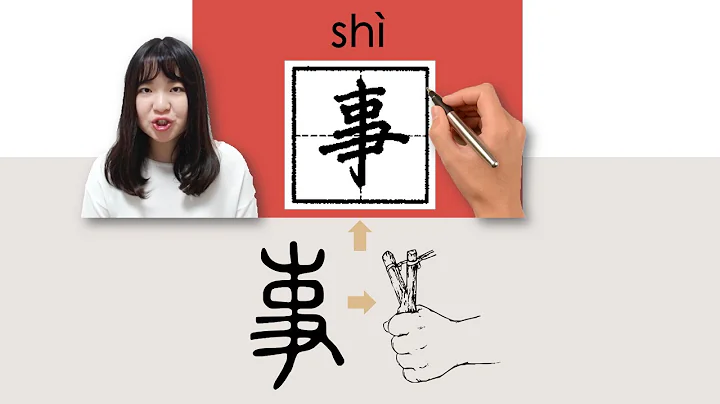Happy children can also be sad
Let me share a little experiment that causes depression : After the happy young mouse Jerry moved, he met his roommate Tai who was more mature, taller and very aggressive. Dee. When getting along, Teddy would attack Jerry from time to time in order to gain the upper hand. After a while, scientists examined Jerry and found that under Teddy's oppression, Jerry had been suffering from social defeat. This will bring a lot of pressure to it, causing it to avoid social (contact with the same kind), will also appear some depression common symptoms - things that were once happy can no longer make it happy. .

When faced with more powerful housemates, young mice will suffer psychosocial stress from being suppressed, which can also be called social defeat stress, and become anxious.
Later, Jerry was taken to two special "homes" by researchers - supplying neurostimulant drugs and alcohol respectively. Here, it feels easier to be happy. But if you want to get the same pleasure next time, you need to take more neurostimulant drugs or drink more alcohol.
In fact, Jerry and Teddy participated in Neuroscience a classic experiment inducing depression in mice. Scientists want to use Jerry's changes in neural activity to study groups of animals, including animals. In life, people are invisibly competing for resources, spouses, social status, etc., and social frustration will put people under long-term stress, which will seriously affect the function of the brain, damage the body's health, and lead to depression. , anxiety disorders and drug addiction, among other conditions.
Recently, in a study published in "Science" scientists from China's Fourth Military Medical College Xijing Hospital, Peking University and Imperial College and other institutions jointly found that when mice suffer social frustration Later, neural activity in their brains prompts them to sleep.. After a night's sleep, the mice's stress hormone levels would decrease, making them less anxious and better able to respond to threats. So, when you feel frustrated or stressed, take a nap, and everything may really get better after you sleep.

Image source:PIxabay
The changes brought about by sleeping
When facing a sudden threat, the hypothalamus-pituitary-adrenal axis in the human body will be quickly activated, releasing epinephrine and the stress hormone (adrenocortical hormone). These hormones increase blood sugar levels in the body and increase sensory sensitivity, helping us escape dangerous situations. When the threat is gone, stress hormones in the body also return to normal levels. However, when you are under the pressure of social defeat for a long time, stress hormones will remain at a high level for a long time, interfering with the circadian rhythm, leading to insomnia and other symptoms. Some of these hormones also suppress the body's immune function, making the body more susceptible to disease.
If you want to avoid these situations, the best way is to cut off the source - control the hypothalamus that promotes the release of adrenocortical hormone . Under stress, the paraventricular nucleus (hypothalamus) in the hypothalamus releases corticotropin-releasing factor (CRF) into the bloodstream. After they follow the blood to reach the adrenal cortex , they will prompt it to release stress hormones.
In the new study, the researchers revealed a relatively complete neural pathway that inhibits the paraventricular nucleus : When there are too many stress hormones in the body, a brain area located at the bottom of the midbrain in mice - ventral A specific part of neurons in the lateral tegmental area (ventral tegmental area, VTA) will be activated . These neurons can transmit signals to the paraventricular nucleus (PVH), preventing it from releasing more CRF, thereby reducing stress hormone levels. In addition, they transmit signals to the posterior hypothalamus (LH, which is involved in regulating stress, anxiety, and sleep-wake behavior), prompting the mice to enter sleep state.

From left to right: The three brain areas LPO, PVH and PAG in the brain can sense pressure and transmit signals to the ventral tegmental area. Specific neurons in this brain area will be activated, and then the signals will be separated It is delivered to the PVH and posterior hypothalamus, prompting the mice to sleep and reducing the levels of adrenocortical hormones in their bodies. The mice were no longer anxious after waking up. The picture comes from the paper.
The researchers observed that specific neurons in the VTA are primarily a group of GABAergic neurons that release somatostatin and gamma-aminobutyric acid (GABA), also known as VTASst neurons. As a kind of neurotransmitter , GABA can reduce the activity of neurons and inhibit the transmission of anxiety-related information.
In addition, the stress hormones in mice do not change randomly. When mice were forced to perform physical exercise (running on a roller) or come into contact with unfamiliar environments or objects, the stress hormones in their bodies would not rise. At most, they would sleep for an hour because they felt tired. Only when suffering from social defeat stress (Social Defeat stress), the stress hormones in the mice will rise , specifically activating the above-mentioned neural pathways, and the mice will sleep in a safe "home" this time. , I need to sleep for 5 hours at a time. During this period, VTASst neurons are active, ensuring that the mice remain in the sleep stage. After waking up from sleep, the mice's sense of stress disappeared and their body functions were restored.
But only when VTASst neurons induce two processes—sleeping and reducing stress hormones in the body—at the same time, the mice return to their normal state. The researchers tried depriving mice of sleep and compared the effects of activating and inhibiting VTASst neurons on the mice. They found that mice whose VTASst neurons were suppressed were the worst off, with the highest levels of stress hormones and the most severe anxiety. When the VTASst neurons are activated, the stress hormones in the mice decrease, but compared to the sleeping mice, their overall stress hormone levels still increase, and they still feel anxious.

Image source:PIxabay
Can you sleep under pressure?
There is a result in the study that seems contradictory to the phenomenon in life, because sleep problems are present in almost all mood disorders or anxiety symptoms. Sleep problems can further lead to mood disorders and aggravate the condition. One explanation is that the degree of damage caused by single stress and long-term stress to humans or mice is far different .
In addition, in the new study, the researchers found that when exposed to social stress, half of the mice slept for an extended period of time, sleeping for up to five hours, while the remaining mice and the control group of mice Same, only slept for 1 hour. There may be more complex factors behind this difference, such as genetic influences, as well as individual differences in sleep patterns, stress responses, etc. But undoubtedly, this new research also provides key clues for us to understand the relationship between anxiety and sleep and treat related mood disorders.


















![[EP 533] New HSK 5 Voc 118-120(Intermediate): 充足、愁、丑 || 新汉语水平3.0中级词汇5 || Join My Daily Live - DayDayNews](https://i.ytimg.com/vi/-2E61EIe1Xw/hq720.jpg?sqp=-oaymwEcCNAFEJQDSFXyq4qpAw4IARUAAIhCGAFwAcABBg==&rs=AOn4CLDVLm5ZrYYOy7iY7YZZyCHu5_9OWA)


